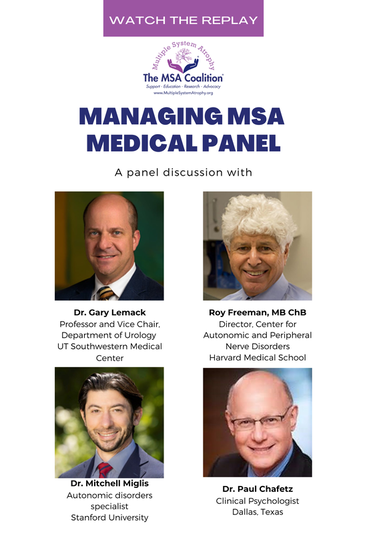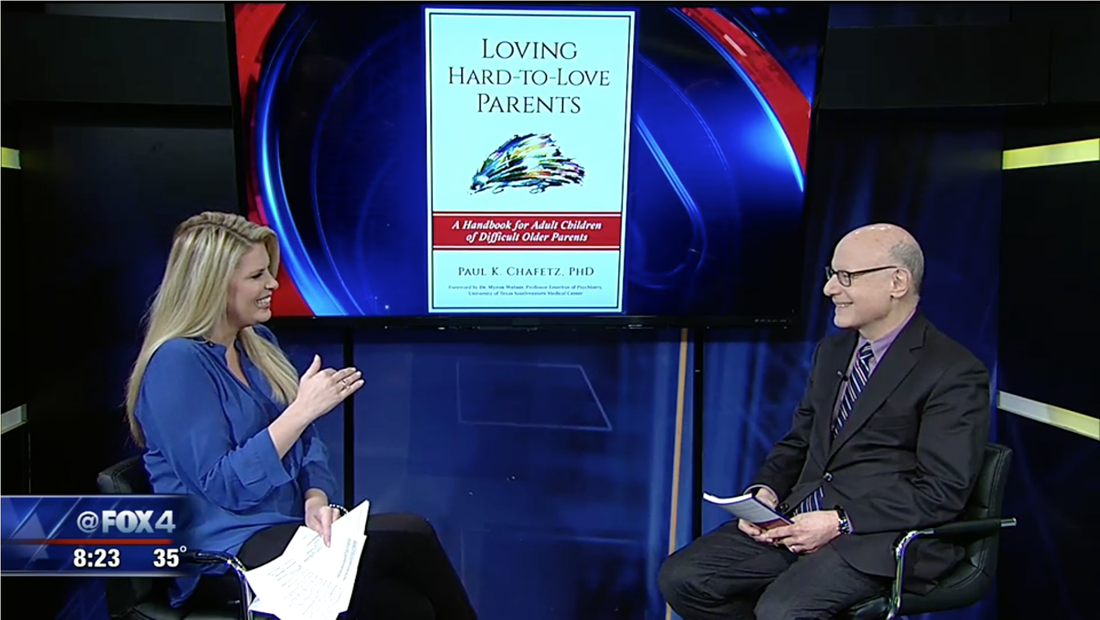Satire from Dr. PaulWelcome back to our two-part series, where we complete the set of one dozen steps to mastering the art of being a difficult older parent. Prepare to embrace your inner parenting diva, the fountainhead of family turbulence.
7. CLAIM YOUR RIGHTS. Tell your children that they owe you respect and tolerance because you raised them. 8. CELEBRATE YOUR ACHIEVEMENTS. Make sure everyone knows about your righteous efforts to fix your offspring. With a little luck, you’ll damage your kids enough to make them difficult to their kids, too. 9. BE PERSISTENT AND STEADFAST. Becoming a difficult parent takes practice. Resolve to work at it every day. Ignore distractions. Do not be moved by your children’s pitiful complaints or disrespectful accusations of you. Your feelings are more important than theirs. After all, they are now adults, and no one promised them a rose garden. If they really want to achieve more peace in their relationship with you or overcome the trauma you have already inflicted on them, let them find my book, Loving Hard-to-Love Parents: A Handbook for Adult Children of Difficult Older Parents, on their own. 10. MAKE THEIR SPECIAL MOMENT YOUR SPECIAL MOMENT. Let’s face it, who cares about your kid's first steps or graduation day, when you can bask in the glory of being the true star of their life’s sitcom? Remember, you didn’t just raise them, you practically invented them. So when they win that Nobel Prize or land a dream job, don’t forget to thank yourself for the award-winning performance of being their parent. 11. NEVER MISS AN OPPORTUNITY TO START A FIGHT DURING A MEAL. Why savor a delicious meal when you can savor the sweet taste of family drama? It’s like getting a gourmet dinner and a front-row seat to a reality TV show, all in one. 12. INVEST IN THE FUTURE. Remember to alienate your grandchildren, too. Satire aside, the sad reality is that difficult older parents ARE a reality. I have worked with them and their families for over forty years. If I can be of assistance to you, I hope you will contact me.
0 Comments
Satire from Dr. PaulHave you known any difficult older parents and secretly admired them? Have you always hoped to be a difficult older parent yourself, but somehow not yet succeeded? If so, do not despair! This goal is still within reach. I have twelve easy strategies to help YOU become a difficult older parent. Here are the first six. Stay tuned for the rest in Part 2.
1. START EARLY. You will leave much deeper impressions on your children if you start when they are very young. Capitalize on the natural readiness of healthy children to love, trust, and admire their parents, and their almost total lack of natural defenses against difficult parents. 2. START WITH THE BASICS. Practice being angry, arrogant, callous, critical, entitled, intrusive, irrational, sarcastic, and selfish. After mastering these, you can move on to more advanced skills. 3. DIVERSIFY YOUR APPROACH. Be creative. For example: a. Never stand on ceremony, even if your kids call you intrusive; b. Be open and honest about who your favorites are and aren’t; c. Speak your truth, even if it hurts their feelings in the present; d. Share your wisdom about life often, even if unappreciated in the moment; and e. Make your own decisions about whom to trust with your important decisions, even if your kids call you gullible or irresponsible 4. RISE ABOVE MERE FACTS. Don’t let the truth stand in the way of a compelling story. Make liberal use of lies, innuendo, and hypocrisy. 5. ESTABLISH USEFUL BOUNDARIES. Insist that your adult children both tell you everything you ask them, and protect the family’s privacy (i.e. secrets) against outsiders. Keep your own cards close to your vest. 6. INVOLVE YOUR COMMUNITY. Share your disapproval of your adult children with friends. After all, it is not gossip if it is true, is it? Stay tuned for Part 2, where we'll unveil even more strategies for fulfilling your difficult older parent dreams. See you then! Soon it will be back-to-school day in Dallas. Even if you or your children are not heading to a classroom, I have news for you: We’re all in school! No one already has every skill required for success in every stage of life or every challenge we might encounter. I often joke that to learn everything we need to know in life takes 700 years. We have to learn progressively and continually. This is life-long learning. I call this “Grow Into It.”
My father and his siblings owned a fair-sized business. I have clear memories of him telling me many times, pointing to his daily correspondence and continual reading, “This is my homework,” and, pointing to his balance sheet, “This is my report card.” He was saying that, just as I was in school and had a duty to work hard and learn as much as possible, so did he. There will be a test. My psychology clients range in age from their twenties to their eighties. In our sessions, they all discover that they lack some valuable skill for living, for successfully solving their current dilemma. I urge them to see themselves as students, and to work at learning the skill they lack. As they do this, it is uncanny how their efficacy in life goes up, and their mood follows. Here is the punchline. No one knows everything, and everyone must keep learning. This is, I believe, a liberating insight. It means that there is no shame in not yet being an expert in a particular area. It means that your friends will be happy to help you gain the new skill, because they know you will be happy to return the favor when needed. It means that consulting a psychologist about your particular dilemma does not mean you are sick, weak, or crazy! So, when you wake up every day, remember that school is in session for you, too. Have a great year! In my previous blog, I introduced Benjamin, the financially successful but narcissistically abusive husband in his fifties and sixties. Adults like Benjamin have healthy brains, yet for decades use their freedom to treat others hurtfully. Despite his history of strong accomplishment in the business or professional world, Benjamin's closest loved ones suffer painfully, for decades, from his rude, selfish, mean behavior at home.
In the 18th and 19th century days of sail, warships carried rows of multi-ton bronze cannons. Each sat in a wheeled carriage and was controlled by a crew of men using heavy ropes. Imagine if the carriage ever somehow came disconnected from its ropes, or even worse, the cannon fell off its carriage. With every ocean wave, it would slam violently against the walls of the ship like a wrecking ball. Freed from its constraints, it could kill men and even sink the ship. This is the nightmare of a “loose cannon.” Now, back to Benjamin. Imagine how life only gets worse for Benjamin’s relatives when, in his later years, Benjamin develops a brain disease that erases his financial and business wisdom. Bad financial decisions start happening, scaring this family and associates. Benjamin, still narcissistic and empowered, but now also impaired, becomes a “loose cannon.” Accustomed to being in charge and ignoring others’ feelings, Benjamin swats away efforts to protect him from himself. He rejects requests that he delegate responsibility or authority at work, or be evaluated for dementia. After decades of enduring Benjamin’s emotionally damaging behavior, the family now also faces financial danger from him. When Benjamin’s wife calls me, we dive into the skills she needs to survive this chapter of her life, such as: avoiding pointless confrontations; finding her assertiveness; identifying allies and resources; distinguishing needs vs wants; etc. Her new skills empower her to grow into a more effective approach to her dilemma. Do you know anyone like Benjamin's wife? I often have female patients in their fifties or sixties whose husband is financially very successful in his professional or business career. He is very smart, and his personality is exceedingly confident, powerful, and effective. To business associates and friends, he is energetic, outgoing, and charming, even charismatic, and unfailingly good company.
While most such men are also loving husbands and fathers, those about whom I am consulted are NOT loving husbands and fathers! Rather, they are extremely unpleasant to their wives and often their children. Let’s call one Benjamin. At home, Benjamin’s behavior toward his wife and children is frequently controlling, arrogant, angry, domineering, insensitive, and generally emotionally abusive. He is narcissistic, selfish, and cruel. He may limit his wife’s access to money, and sometimes her freedom of movement or association. Her opinions and wishes are often belittled, ridiculed, or dismissed. Benjamin probably qualifies for a diagnosis of narcissistic personality disorder. These wives have often been worn down to self-protective passivity, and suffered real damage to their self-esteem. Try as they might to please, or at least satisfy, their husband, they are chronically labeled as inadequate. Finally, out of desperation and despair, or out of a spark of stubborn self-preservation instinct, she calls me for consultation. In therapy, we discuss the current situation and the historical roots of the current situation. We identify her beliefs and emotions that have contributed to her long cooperation with the unpleasant routine at home. We identify new concepts and skills that could enable her to make her situation better. We plot, then pursue, this plan for her personal growth. As a clinical psychologist, I have had the privilege of helping many patients overcome obstacles and find success in life. For example, Bill, a thirty-year-old man, seemingly had everything going for him but was still struggling to launch, both professionally and personally.
Bill had always been ambitious yet rarely followed a project through to completion. He made excuses for his inaction and felt like a failure. He had plenty of “juice,” but could not quite put it to use. Despite a solid upbringing and a college degree, he was plagued by shame for his “laziness and lame excuses.” Desperate to escape these painful emotions, he reached out to me for help in finding the obstacles to his success. Through our conversations, we were able to identify the underlying fears that were holding him back. We uncovered the roots of these fears, and re-examined them through now-adult eyes. With newfound understanding, we then identified the adult life skills he had not yet acquired. As he practiced these skills, he rapidly became more efficient and effective, and more confident and content. Therapy is not magic. It is real people doing the real work of getting real with themselves, to create real improvement in their lives. When you are ready, I hope you will give me a call.
This month is a milestone for me because it marks 40 years of practicing psychology in Dallas. I could not have done it without the support of many special people, professionals, facilities, and businesses.
Ask your dentist, your doctor, your car mechanic, or your financial advisor. They’ll all tell you that it is essential, a “no brainer,” to check on the health of your teeth, your body, your engine, and your portfolio, on a regular basis, to make sure that any problem is detected and addressed as early as possible.
Shouldn’t it be obvious that our own emotional health and that of our loved ones deserve the same attention? Regular annual mental health check-ups are becoming the new dental hygiene visit of this savvy generation of adults and parents. One in four people will have a mental disorder at some point in their life. Earlier identification offers the chance to intervene to limit the progression of the disorder and limit the disruption to the person’s functioning and development, thus improving their life in many ways. Regular annual mental health check-ups are also valuable opportunities to identify and learn the skills we need to more easily succeed at upcoming transitions in life. Prevention, preparation, identification, remediation. All accomplished in a painless, routine mental health check-up with your mental health professional. If you don’t want to take the time to visit your professional every year, you should at least do a self-assessment of your mental health. I have created a tool that will allow you to do this. Take a look at SELF-ASSESSMENT FOR ADULTS: HOW AM I DOING PSYCHOLOGICALLY? After you answer the 20 simple questions, your results will come to me, and I will call you to briefly discuss your results. As we start April, it is important to note that May is Mental Health Month. It is never too early to give yourself the gift of a little attention to your, and your loved ones’, mental health. Please call me with any questions. Your Uncle Charlie may be getting forgetful. Does that mean that he has lost the privilege of making a new last will and testament or completing other legal actions?
The answer is complicated. If you know an elder whose thinking is not excellent, and who is about to sign a will or other contract, assign powers of attorney, etc., it would be very prudent to obtain an expert opinion on how solid the elder’s abilities are. One of my psychological specialties is to provide an expert, independent assessment of the mental capacity of a living person to sign a new will or other important documents. The assessment is performed in the same week as the new document is signed. Remember, the more important the document is, the more important it is to know now how solid the elder’s capacity is, and therefore how solid their legal right to sign it is, and therefore how reliably the signed document will stand up against any future legal challenge. Avoid painful surprises in the future by obtaining an expert assessment today. Dr. Chafetz can be reached at 469-233-5566. It is with great pleasure that I welcome you back to my office. Like so many of you, I very quickly moved my work to my home. During this time, I continued working with patients over the internet, but now we are finally getting back to normal and I am starting to meet with people face to face. Watch my video to hear more. It's Mental Health Awareness month. We don’t talk enough about mental health challenges, and we don’t do enough to de-stigmatize them. Which leads me to this video.
If life’s obstacles are pressing down on you or someone you know, let this month be the moment when you find the right person to help with these issues. Please watch my video now. The wild ride that has been 2020 continues with autumn bringing new challenges. My practice has seen a surge of new patients. Watch my video to learn why.
The global pandemic continues, but I believe we have reached "the end of the beginning." In this vlog, I discuss what we should expect from ourselves and others now.
I wish you the best during these challenging times. If anyone you know is struggling, please encourage them to reach out for support, and let me know if I can help. As this pandemic stretches from weeks to months, the isolation caused by sheltering-in-place brings on a range of emotions and potentially conflicts with family, friends, and colleagues. If you or anyone you know is struggling, I am here to help. Call me.
Last week, Dr. Paul had the opportunity to speak to the Dallas Executives Association about "Connecting the Dots" during this pandemic.
In my latest vlog, I address our new reality of living with COVID-19 and the opportunity to make sure that later we have something to show for it.
I wish you all the best at this challenging time. If anyone you know is struggling, please encourage them to reach out for support, and let me know if I can help. As 2020 dawns, its time to look forward, and actively set ourselves up for success in the New Year.
I sat down with Good Day Fox 4 host, Lauren Przybyl, to discuss tips for surviving the holidays and my book "Loving Hard-To-Love Parents."
Are you "celebrating" the holidays with a difficult relative or friend this year? Then you MUST watch my new video.
Authors and playwrights always build conflict into their stories.
Why? Because, if there is no conflict, there is no story. There is a valuable psychological message in this for regular people and real life. Listen as Dr. Chafetz explains. Anyone whose spouse develops dementia quickly finds their life profoundly and painfully disrupted.
If you know someone in this situation and would like to be a stronger support to them, please watch this week's video and give me a call. Does having an unpleasant emotion mean that you have a big problem?
Hear my opinion, then let's chat about how we can work together. We have all heard of the effects of the smartphone on people being truly present with each other.
In this week's vlog, I discuss the irony that our interface with the smartphone is called a "screen." Check it out, then let's chat about how we can work together. I often quote the words of other people.
Do you? Why do we do this? Who quotes your words? In this week's video, I discuss these questions. |
Dr. Chafetz“My passion is ensuring that every adult is mentally ready to succeed in all transitions that comprise the adult years. The meaning in my life comes from helping my patients see themselves, their situation, their future, and the entire world with new eyes and a newly courageous attitude. |
Talk to Dr. Chafetz now : 469-233-5566












 RSS Feed
RSS Feed
